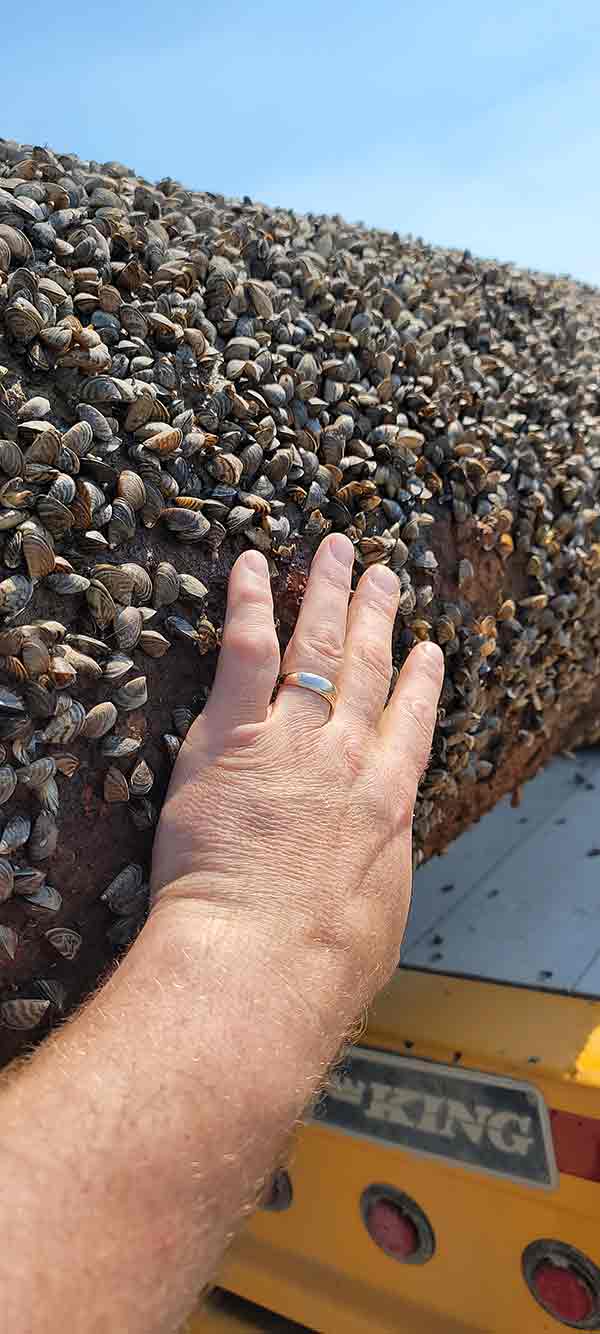Ensuring reliability despite zebra mussels
An aquatic scourge is moving its way through Manitoba’s lakes and rivers and into Manitoba Hydro’s generating stations. They have no natural predators, move easily on currents and on boats, and can easily cut skin if stepped on. The scourge is zebra mussels — they’re here to stay.
Zebra mussels are an invasive species that came to North America from Europe on cargo ship ballast in the 1980s. They’ve been detected in many of Manitoba’s lakes and rivers, including some that flow into our generating stations, and they cling to hard underwater surfaces like concrete and metal. If these small, sharp mollusks attach to the inside surfaces of a generating station’s intake pipes, they plug them up and block critical water flow. Left untreated, zebra mussel buildup inside generation equipment can completely block water required for emergency fire suppression and cooling water that keeps turbines from overheating.
With the help of industry experts, Manitoba Hydro developed a plan to rid its stations of these pests. It has been approved by several government agencies — the Pest Management Regulatory Agency of Health Canada; Manitoba Environment, Climate and Parks; and Manitoba Agriculture and Resources development — and ensures the continued reliability of the generating units in spite of the risks zebra mussels pose.
Manitoba Hydro uses a low-level chlorine treatment, with similar chlorine levels to municipal Canadian drinking water, to eradicate zebra mussels at its facilities. When water temperatures are above 15°C (59°F), an experienced contractor begins the treatment process, which takes approximately two weeks per facility. Chlorinated water is injected into cooling water and fire suppression pipes to neutralize zebra mussels. It’s then safely discharged, and water is monitored throughout the process to ensure it is de-chlorinated as planned.
The treatment is the most effective way to control adult zebra mussel growth, widely used at other hydroelectric generating stations in North America, and Manitoba Hydro does not anticipate any effects on fish or aquatic life.
In 2023, Manitoba Hydro will perform the treatment at the Keeyask, Kelsey, Kettle, Long Spruce, Limestone, and Jenpeg generating stations on the Nelson River and the Grand Rapids Generating Station on the Saskatchewan River.
The water might have mussels, but Manitoba Hydro has muscles.

